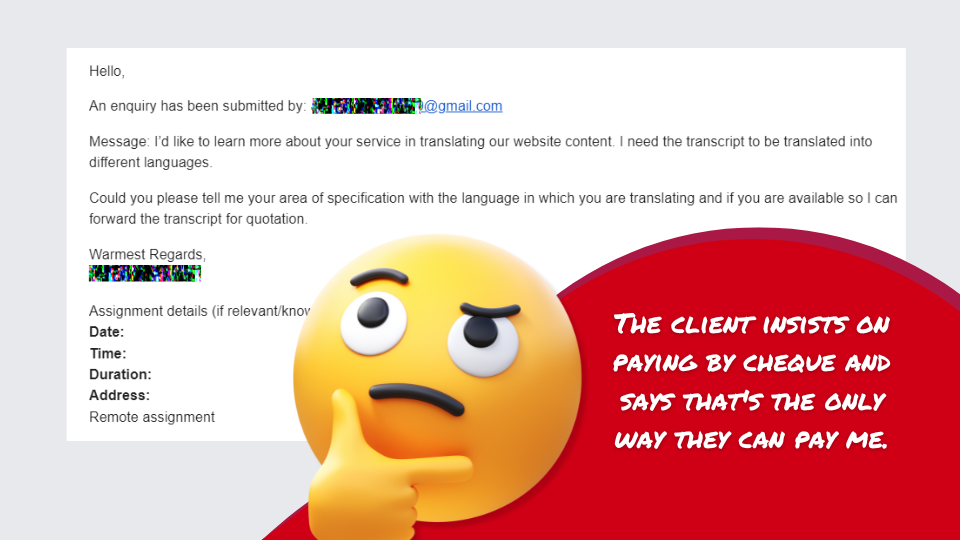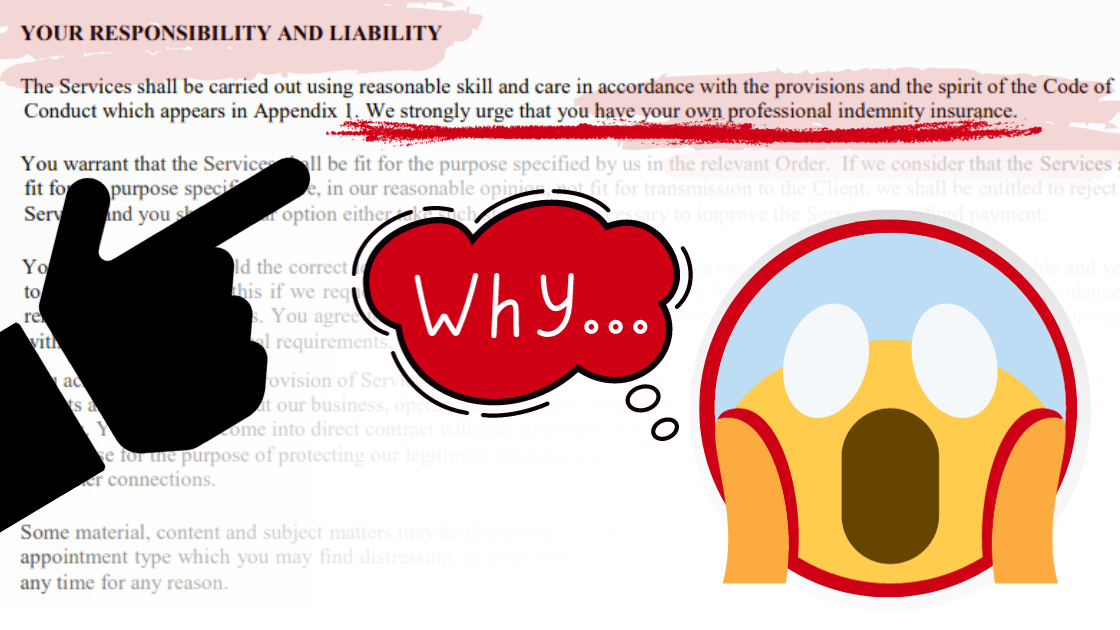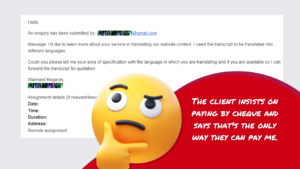
The Silent Heist: Online Scams Targeting Freelance Translators and Interpreters
As more people embrace the freelance lifestyle and offer their skills and services to clients around the world, the digital landscape becomes a bustling marketplace for talent. In this space, where creativity meets opportunity, a concerning trend is on the rise – online fraud.
Imagine working hard on a project, only to discover that the promised payment is just a mirage. Sadly, this is becoming a common tale for many freelance linguists. Scammers are always looking for new and cunning ways to take advantage of you. That is why you must be aware of the risks, the tricks they use and how you can protect yourself.
Examples of how scammers may try to take advantage of you online:
- Non-Payment: Freelancers complete the work, but the client refuses to pay, disappears, or claims dissatisfaction without valid reasons.
- Ghosting Clients: After freelancers complete the work, clients disappear without providing feedback, communication, or payment.
- Payment Fraud: Clients may send fraudulent checks or use fake payment methods. After the freelancer completes the work, the payment is found to be invalid, and the freelancer loses both time and money.
- Overpayment Scams: Clients send a large payment and then claim it was a mistake, asking the freelancer to refund the excess amount. The initial payment is often fraudulent, and freelancers lose money when refunding.
- Refund Request Scams: Clients request a refund after receiving the work, citing various reasons. Once the refund is processed, the client disappears, and the freelancer loses both the payment and the completed work.
- Upfront Payment Scams: Clients ask for a substantial upfront payment before work begins and disappear once the payment is made, leaving freelancers with no work or compensation.
- Phishing Emails: Freelancers receive emails that appear to be from legitimate platforms or clients, asking for login credentials or sensitive information. These phishing attempts aim to gain unauthorized access to accounts.
- Identity Theft: Scammers use freelancers’ personal information to commit identity theft. This may involve creating fake profiles, accessing financial accounts, or engaging in criminal activities under the freelancer’s name.
- Fake Job Postings: Scammers pose as clients posting fake job opportunities to lure freelancers. Once hired, freelancers may be asked for upfront fees or personal information. The job itself may not exist.
- Stolen Portfolio Scams: Scammers steal a freelancer’s portfolio or work samples and use them as their own. They may secure jobs based on the stolen work, damaging the original freelancer’s reputation.
- Impersonation Scams: Scammers impersonate legitimate clients or platforms to deceive freelancers. They may use similar email addresses, website URLs, or logos to appear authentic and gain trust.
- Unverified Clients: Freelancers work with clients whose accounts are unverified or suspicious. After completing the work, it is discovered that the client’s identity is fake, and payment cannot be pursued.
- Bait-and-Switch Projects: Initially legitimate projects are switched to different, lower-paying tasks after the freelancer has committed to the work.
- Fake Escrow Services: Scammers propose using a fake escrow service to handle payments. The freelancer deposits funds, thinking they are secure, but the escrow service turns out to be fraudulent, and the money is lost.
As you can see, there are many ways scammers can try to take advantage of you. That is why we all must be vigilant in protecting our work and negotiating fair terms. Let’s work together on making the online space safer and more prosperous for all freelance translators and interpreters.
This is what we, at Linguist Directory, do to protect our members.
Your personal information, including your email address and telephone number, is not displayed on the website where they could be easily harvested by spammers, scammers and criminals.
Instead, we use contact forms together with a premium firewall and anti-spam to filter messages containing spammy keywords and those sent by known spammers and spam bots.
When an offer lands in your inbox, it contains the name and email address of the person contacting you. You can use those to assess whether an offer looks genuine or more like spam or worse a scam. Please use your professional judgment when accepting any offers. If an enquiry looks dodgy, don’t respond and forward it to us, so we can review it.
Here are some of the questions we would encourage you to ask yourself before accepting any offers.
An offer submitted by an individual:
- Do I know this person? Will I meet them in person?
- If they fail to pay me (as they sometimes do), how will I get my money?
- Should I ask them to pay me at least some of the money in advance?
- If they don’t trust a vetted professional like me, why should I trust them?
An offer submitted by a company:
- Do I know this company? Is this a reputable business?
- Was the offer sent from a company domain? (e.g. sales@their-company.co.uk) and if not, why not? Sometimes we see solicitors using their personal email addresses when working from home, however, translation companies nearly always use their official company email addresses.
- Is the company based in the UK? Is this a registered business? (If they don’t pay me, how will I get my money? Will I be able to take them to the Small Claims Court? How much time/money is this likely to cost me?)
Why is this important? It’s your time, your money and your work. Protect it!
Read more
-

Online Scams Targeting Freelance Translators and Interpreters
The Silent Heist: Online Scams Targeting Freelance Translators and Interpreters As more people embrace the freelance lifestyle and offer their skills and services to clients around the world, the digital…
-

Interpreter Insurance – Professional Indemnity Insurance for interpreters and Freelance Translators
Interpreter Insurance – Professional Indemnity Insurance for interpreters and Freelance Translators Are you a freelance translator or interpreter working in diverse fields like law, health and social care without effective…
-

The risks of working as a freelance or subcontracted linguist
Freelance and subcontracted linguists. Same thing, right? Well, yes and no. They’re both self-employed, independent people. Broadly, they do the same thing. But when it comes to how they…
Have you ever come across these or any other scams?
Use the contact form below to share your experience and help other freelance translators and interpreters stay safe online.














Leave a Comment